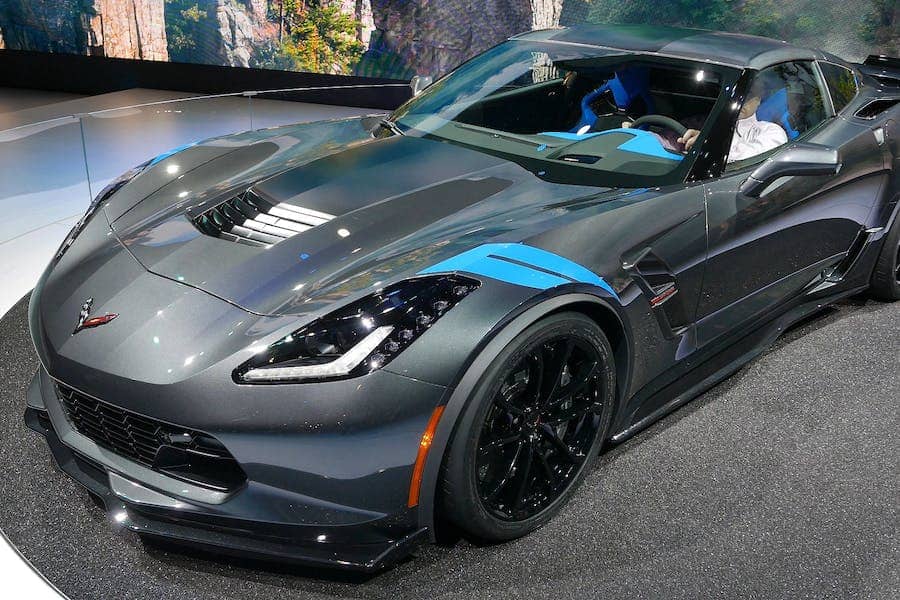
When it comes to cars, one distinction that often arouses the interest of motoring enthusiasts and casual drivers alike is the difference between a sports car and a regular car. Sports cars, with their sleek design and high-performance features, stand apart from their everyday counterparts. However, the differences go beyond mere aesthetics and speed.
If you are thinking of buying a salvage car from a trusted bidding platform such as Cars4Bid, a used one from a local dealer, or a brand new one from the showroom, understanding the key ways in which sports cars differ from normal cars can help you make an informed decision.
In the following sections, we will delve deeper into the distinguishing characteristics of sports cars, shedding light on what makes them special and how they diverge from ordinary cars in terms of performance, design, and functionality. Read on!
Performance Characteristics
Sports cars are engineered for superior performance. They often feature powerful engines, enabling rapid acceleration and high top speeds. Additionally, they are equipped with performance-oriented components such as high-performance tires, advanced suspensions, and superior braking systems. These elements provide enhanced grip, swift and precise handling, as well as efficient deceleration, which is crucial in high-speed driving.
Conversely, regular cars prioritize fuel efficiency, comfort, and affordability over performance, and while they may not match the exhilarating speed and handling of sports cars, they are generally more practical and economical for daily use.
Design Elements
When it comes to design, sports cars are recognized for their sleek, aerodynamic shapes and lightweight frames, crafted to reduce air resistance and enhance speed. Their interiors often feature premium materials and a cockpit-like design for an immersive driving experience.
On the other hand, regular cars generally have more spacious and functional interiors designed to maximize comfort and practicality for everyday use. The design of a regular car focuses more on seating capacity, storage space, and user-friendly features, making them more suitable for families and routine commutes.
Handling and Control
Sports cars exhibit superior handling and control, delivering a responsive and engaging driving experience. They tend to have tighter suspension for increased road grip and sharper cornering. Their low center of gravity also enhances stability at high speeds.
Regular cars, while less dynamic, offer smoother rides and are easier to maneuver at low to moderate speeds, ideal for city driving or long-distance travel. They prioritize comfort and stability over agility, making them suitable for a wider range of drivers and driving conditions.
Engine Specifications
The engine is the heart of any car, and sports cars are known for their powerful engines designed to deliver impressive acceleration and top speed. They often have lightweight but high-performance engines, producing a significant amount of horsepower. The engine placement also plays a crucial role in performance, with many sports cars featuring rear-wheel or all-wheel drive systems for optimal handling.
In comparison, regular cars usually have smaller and more fuel-efficient engines. While they may not be as powerful or speedy as sports cars, they offer practicality and versatility for daily use. Regular cars also come in a range of engine types, from gasoline to hybrid and electric, catering to varying performance needs and environmental concerns.
Price and Affordability
As expected, sports cars are significantly more expensive than regular cars, with prices varying depending on the brand, model, and features. They are considered luxurious vehicles and often come with a high price tag due to their advanced technology and engineering. Maintenance costs for sports cars are also typically higher.
On the other hand, regular cars are more budget-friendly, making them accessible to a wider range of consumers. They also have lower maintenance costs, making them a more practical choice for everyday use.
Fuel Efficiency
Sports cars are designed for speed and performance, so they often come with larger engines that consume more fuel. They prioritize power over efficiency, which means they may not be the most fuel-efficient option for regular use.
Regular cars, on the other hand, are built to be more fuel-efficient. With smaller engines and lightweight designs, they offer better gas mileage and are a more practical choice for those looking to save on fuel costs.
Driving Experience
Owning a sports car is often associated with the thrill of driving. With their powerful engines and responsive handling, sports cars offer an exhilarating experience on the road.
Regular cars offer a more comfortable and smoother driving experience. Their suspension systems are designed to prioritize comfort over performance, making them ideal for everyday use and longer commutes.
Practicality
In terms of practicality, sports cars, with their low ground clearance and often limited seating, do not always cater to the needs of a family or accommodate large cargo. They are primarily designed for speed, performance, and style, not utility.
However, regular cars are designed with practicality in mind. They often have more passenger space, higher ground clearance, and ample cargo room, making them suitable for daily commuting, family outings, and grocery shopping. Therefore, a regular car provides functionality for everyday use, while sports cars are more about the thrill and luxury of driving.
Safety
Sports cars, built for speed and performance, often come equipped with high-end safety features like advanced braking systems, stability control, and high-performance tires. However, their high speeds can potentially increase the risk of severe accidents.
On the other hand, regular cars are designed with safety features suited for everyday driving conditions. These can include automatic emergency braking, lane-keeping assist, and adaptive cruise control. While they may not have the performance capabilities of sports cars, regular cars are often rated higher in terms of safety due to their slower speeds and more predictable handling.
So, Which One Should You Choose?
It ultimately depends on your personal preferences and needs. If you are a thrill-seeker, enjoy driving fast, and have the means to afford a sports car, then it may be the right choice for you. However, if practicality and everyday functionality are more important to you, then a regular car would be the better option.
Regardless of what type of car you choose, it is crucial always to prioritize safety and adhere to traffic laws while driving. The excitement of a sports car should never come at the expense of risk to you or others on the road.








